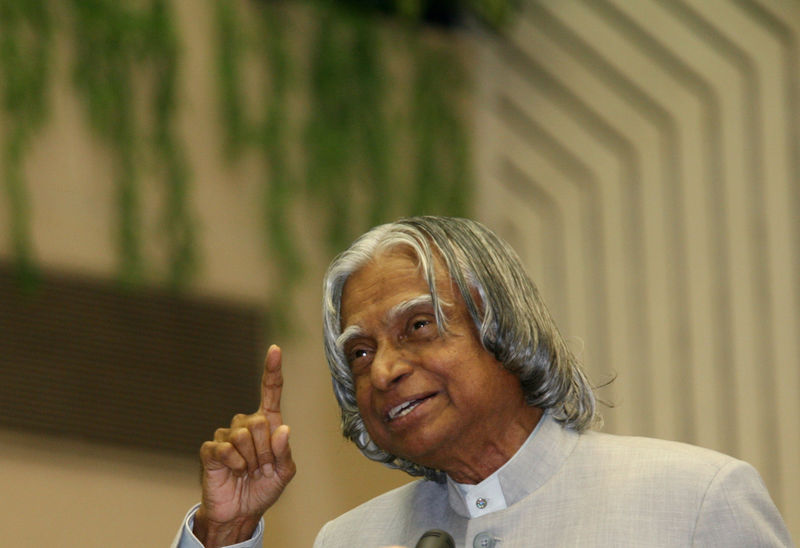NEW DELHI (Reuters) - Former Indian president A.P.J. Abdul Kalam, considered the father of the country's missile programme, died on Monday in hospital at the age of 83, a doctor said.
Popularly known as "Missile Man," Kalam led the scientific team that developed missiles able to carry India's nuclear warheads. He became a national folk hero after helping oversee nuclear tests in 1998 that solidified India's status as a nuclear weapons state. India's first atomic test was in 1974.
Kalam died from cardiac arrest in Bethany Hospital in the northeastern city of Shillong, capital of Meghalaya state, according to hospital chief executive officer John L. Sailo.
Kalam, who was India's 11th president from 2002 to 2007, had collapsed earlier in the day while delivering a lecture, according to Indian media reports.
Kalam, who wrote a book called "Ignited Minds," became best known as a tireless campaigner for unleashing India's technological muscle and discouraging expensive imports from the West.
Born on Oct. 15, 1931 in the southern state of Tamil Nadu, Kalam graduated from the prestigious Madras Institute of Technology in aeronautical engineering.
Finance Minister Arun Jaitley expressed his condolences on Twitter: "We have lost an ideal citizen. May his soul rest in peace."
